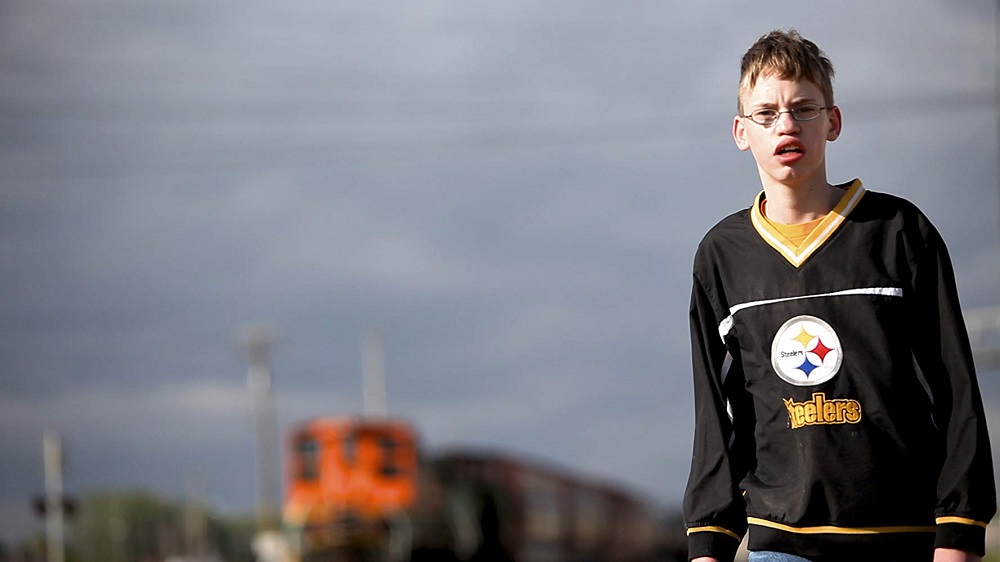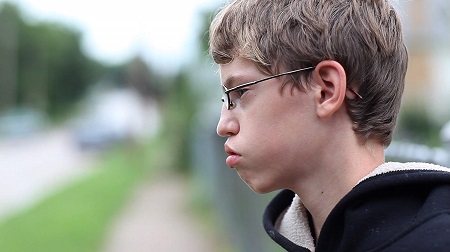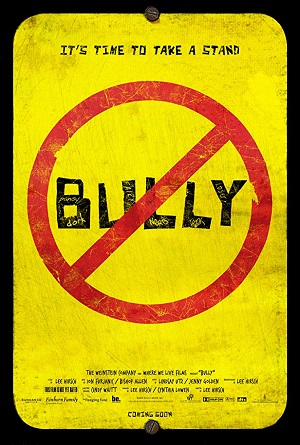
Engrossing Bully an Impactful Rallying Cry
Watching Bully isn’t easy. The movie throws images on the screen that make the viewer decidedly uncomfortable, showcasing children in peril (whether they care to know it or not) and parents who have lost their young ones to suicide with pointed candor. It doesn’t pull punches, director Lee Hirsch (Amandla! A Revolution in Four Part Harmony) delivering his saga of kid-on-kid brutality with a didactic verisimilitude that’s chilling.

Filmed over the course of the 2009-2010 school year and smack-dab in the middle of the American heartland, Hirsch weaves a cadre of stories into a cohesive narrative highlighting what it is like to both be the subject of abuse as well as attempts to get into the heads of the parents of those kids being abused. He also focuses on one school administrator trying to navigate these damaging waters the best she knows how, highlighting her struggles and almost comical (comical if they weren’t so depressingly heartbreaking) attempts to assure parents her school will do all it can to hold bullies accountable.
It’s all fairly straightforward. Bully follows its cast of characters. It shows their struggle. It listens to what they have to say. It offers up an emotional finale. It asks its viewers to take action and try to help put an end to bullying and educate their children on the effects these heinous actions have upon bullied and bully alike. That’s it. Nothing more, and there isn’t a darn thing wrong with that.
As much as the stories of Middle School student Alex, given the distasteful nickname ‘Fish Face’ by his abusive so-called friends, 16-year-old lesbian Kelby and 14-year-old Ja’Meya (incarcerated in a juvenile detention center for reasons better left discovered by watching the film), might be, for me it was the stories of parents David and Tina Long and Kirk and Laura Smalley that really brought home the impact bullying can have upon an entire family. Their children were lost to them, taking their own lives (Kirk and Laura’s son only 11-years-old) because the abuse they were receiving in school just became too much to bear.

Hirsch has delivered an important and vital documentary. Cinematically, he’s compiled his footage in a way that is compelling, and it’s hard to believe anyone who watches this one won’t come away impacted by what they’ve witnessed. Is that enough on its own? Probably not, but Bully does get the dialogue started, and that in and of itself is an important attribute worth championing.
On a side note, the film has been the subject of a long-simmering rating controversy between Hirsch, distributors The Weinstein Company and the MPAA. Originally receiving an R-rating, a rating upheld by a single vote upon appeal, the movie is now hitting theatres unrated, some chains choosing to treat it as a PG-13 release while others sticking with the MPAA’s original R designation.
Personally, Bully has no business carrying the restricted tag. Those who have the most to learn from the film are potentially being kept away by an arbitrary designation thanks to five, that’s right, five, F-bombs. As idiotic a decision as that might be, it’s hard to believe that Harvey and Bob Weinstein haven’t helped gin up this controversy in order to generate additional publicity and thusly more money at the box office. I know that this is a cynical statement, but after watching the picture that’s a takeaway a little difficult not to take note of. These f-words easily could have been bleeped out and they wouldn’t have lost an ounce of impact, and while I agree the MPAA is making a silly, puritanical decision I also don’t see what the harm would have been to make this minor little change. The kids, the parents and their collective stories loudly speak for themselves, and I seriously doubt a couple less vulgarities, no matter how common they might be coming out of the mouths of middle and high school students, would have affected things one little bit.
Film Rating: 3½ (out of 4)






